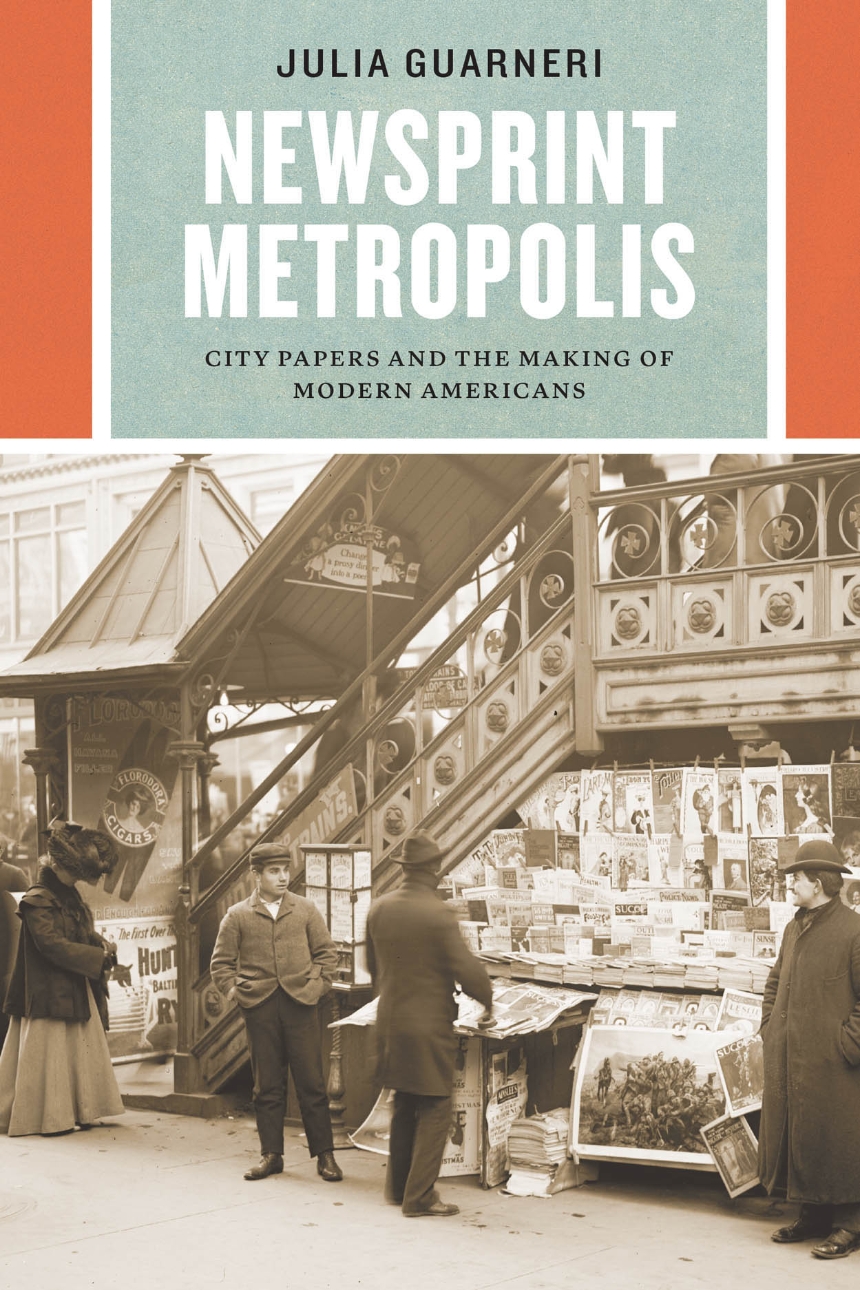Newsprint Metropolis
City Papers and the Making of Modern Americans
Newsprint Metropolis
City Papers and the Making of Modern Americans
Publication supported by the Neil Harris Endowment Fund
At the turn of the twentieth century, ambitious publishers like Joseph Pulitzer, William Randolph Hearst, and Robert McCormick produced the most spectacular newspapers Americans had ever read. Alongside current events and classified ads, publishers began running comic strips, sports sections, women’s pages, and Sunday magazines. Newspapers’ lavish illustrations, colorful dialogue, and sensational stories seemed to reproduce city life on the page.
Yet as Julia Guarneri reveals, newspapers did not simply report on cities; they also helped to build them. Metropolitan sections and civic campaigns crafted cohesive identities for sprawling metropolises. Real estate sections boosted the suburbs, expanding metropolitan areas while maintaining cities’ roles as economic and information hubs. Advice columns and advertisements helped assimilate migrants and immigrants to a class-conscious, consumerist, and cosmopolitan urban culture.
Newsprint Metropolis offers a tour of American newspapers in their most creative and vital decades. It traces newspapers’ evolution into highly commercial, mass-produced media, and assesses what was gained and lost as national syndicates began providing more of Americans’ news. Case studies of Philadelphia, New York, Chicago, and Milwaukee illuminate the intertwined histories of newspapers and the cities they served. In an era when the American press is under attack, Newsprint Metropolis reminds us how papers once hosted public conversations and nurtured collective identities in cities across America.
368 pages | 8 color plates, 59 halftones | 6 x 9 | © 2017
Historical Studies of Urban America
History: Urban History
Reviews
Awards
American Historical Association: Eugenia M. Palmegiano Prize
Won
Kappa Tau Alpha: Frank Luther Mott - Kappa Tau Alpha Research Award
Finalist
Carl Couch Center for Social and Internet Research: James W. Carey Media Research Award
Won
Urban Communication Foundation: Jane Jacobs Book Award
Won
